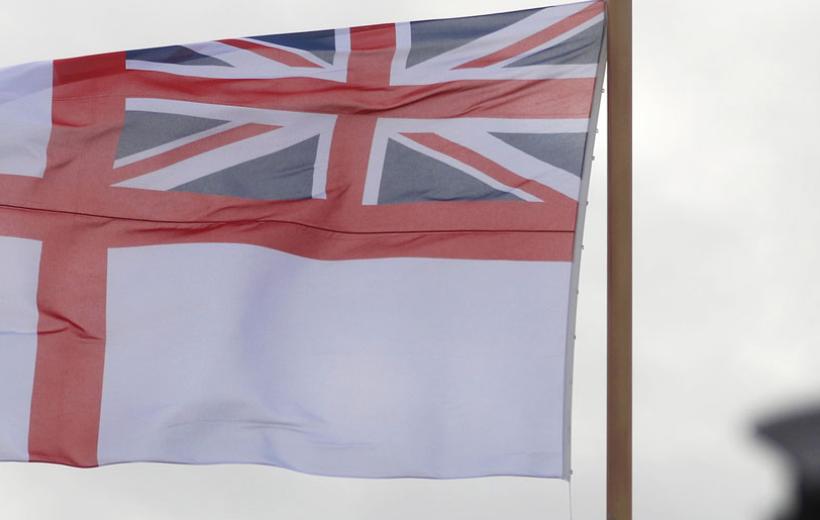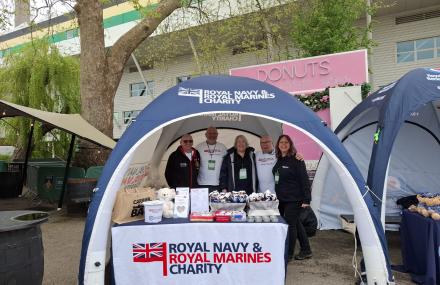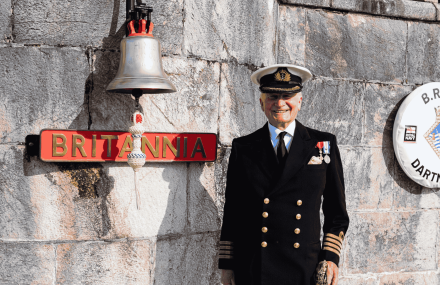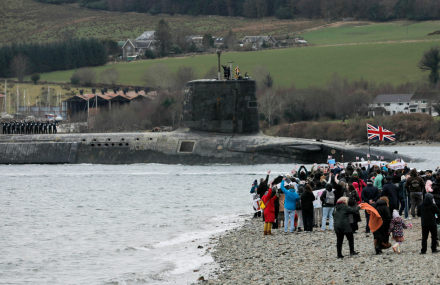As we rapidly approach the 75th Anniversary of the Victory in Europe - VE Day, it is timely to reflect the part played by the Royal Navy and her sailors and marines in the victory over the Italians and Germans and also to acknowledge that the World remained at war for several more brutal months until Japan surrendered in August. This short series of articles tells this history through the words of two fine Historians Sir Winston Churchill and Corelli Barnett. It is hard for us to imagine the horror of total war but it is right that we remember those that took part in this global conflict protecting our Nation’s interests.
Churchill sums up the achievements of the Royal Navy in Volume 6 of his History of the Second World War Volume 6 titled Triumph and Tragedy.
‘The surface fleet suffered a more passive fate. The big ships had long been confined to the Baltic. At Gdynia the battle-cruiser Gneisenau, now a hulk, fell into Russian hands [along with the uncompleted aircraft carrier the Graf Zeppelin]. American bombers sank the Koln at Wilhelmshaven on March 30 and British bombers sank the Scheer in Keil harbour on April 9, and her sister ship the Lutzow at Swinemunde on April 16. The two old battleships Schleswig-Holstein and Schlesien were scuttled. Only the small coastal craft, the midget submarines, and the U-boats fought to the end. When the British entered Keil on May 3 scarcely a building in the great naval port was unsmitten. The cruisers Hipper and Emden, forlorn and derelict, lay stranded and heavily damaged by bombs. Only a few mine-sweepers and small merchant vessels were afloat. In Danish ports lay the cruisers Prinz Eugen, Nurnberg and Leipzig. These and about fifteen destroyers and a dozen torpedo-boats were all that remained of the German Fleet.
Allied help to Russia deserves to be noted and remembered. Losses in the earlier convoys were heavy, but in 1944 and 1945, when convoys sailed only during the dark winter months, they were small. In the whole of the war ninety-one merchant ships were lost on the Arctic route, amounting to 7.8 per cent of those returning. Only fifty-five of these were in escorted convoys. In this arduous work the Merchant Navy lost 829 lives, while the Royal Navy paid a still heavier price. Two cruisers and seventeen other warships were sunk and 1840 officers and men died.
The forty convoys to Russia carried the huge total of £428,000,000 worth of material from Britain alone, including 5000 tanks and over 7000 aircraft.
Approximate total Cargo transported from the UK and US 4,000,000 tons of which circa 300,000 tons was lost en-route.
Thus we redeemed our promise, despite the many hard words of the Soviet leaders and their harsh attitude towards rescuing our sailors’.












